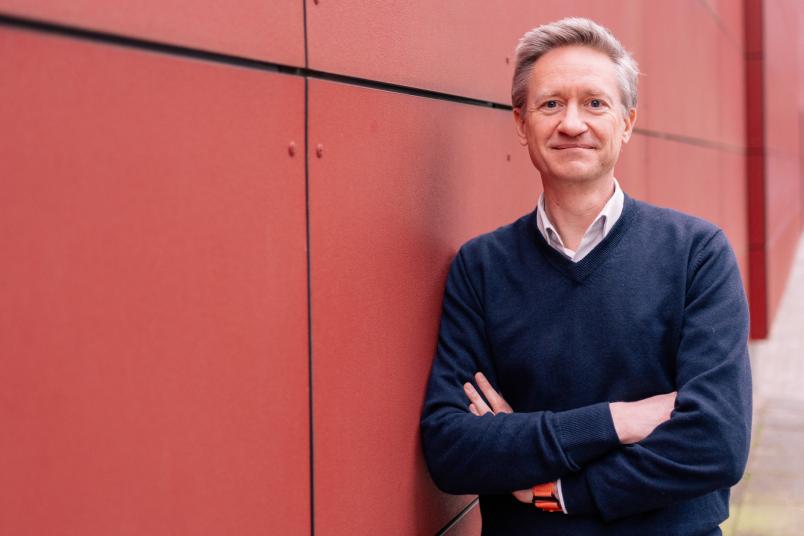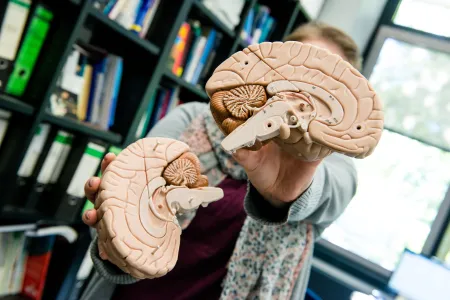
Hardy Hagena is a researcher in the Department of Neurophysiology at Ruhr University Bochum.
Neuroscience
Two Brain Areas Compete for Control
The locus coeruleus and the ventral tegmental area compete for control over the formation of memory content. This has been shown by a team of neuroscientists using light-controlled nerve cells.
Researchers at Ruhr University Bochum, Germany, have studied the impact of two brain areas on the nature of memory content. The team from the Department of Neurophysiology showed in rats how the so-called locus coeruleus and the ventral tegmental area permanently alter brain activity in the hippocampus region, which is crucial for the formation of memory. The two areas compete with each other for influence to determine, for example, in what way emotionally charged and meaningful experiences are stored. Dr. Hardy Hagena and Professor Denise Manahan-Vaughan conducted the study using optogenetics. In the process, they genetically modified rats so that certain nerve cells could be activated or deactivated with light. They published their findings in the journal PNAS (Proceedings of the National Academy of Sciences) on December 30, 2024.
The basis of learning
Neurotransmitters such as dopamine and noradrenaline play a decisive role in information processing. They can permanently change the ability of nerve cells to communicate; this is known as synaptic plasticity, which in turn provides the cellular basis for memory formation. Long-term potentiation increases the ability of the relevant synapses to communicate, while long-term depression of synaptic transmission reduces the activity of certain synapses in the hippocampus. This makes it possible to store and update experiences.
The locus coeruleus and the ventral tegmental area release neurotransmitters into the hippocampus, where learning processes take place. Until now, it was not fully understood to what extent these regions play a role in synaptic plasticity and, consequently, in learning processes. What has been established is that the ventral tegmental area is important for reward and aversion reactions, whereas the locus coeruleus is crucial for the perception of novel stimuli and therefore controls attention.
How does the hippocampus affect memory formation?
Hagena and Manahan-Vaughan recorded the activity of synapses in the hippocampus of rodents. The animals were genetically modified in such a way that the activity of certain cells of the locus coeruleus and the ventral tegmental area could be either inhibited or stimulated with light. Activation of the ventral tegmental area resulted in long-term potentiation in the hippocampus. The opposite was the case when the locus coeruleus was activated.
When the researchers inactivated the ventral tegmental area in behavioral experiments, long-term potentiation in the hippocampus was suppressed during the exploration of a new environment. Conversely, when they inactivated the locus coeruleus, long-term depression was inhibited during the exploration of environmental features.
The hippocampus can process different aspects of spatial information through long-term potentiation and long-term depression. The researchers have now identified the physiological process that controls these changes in synaptic plasticity.
Process determines nature of memory content
“We were surprised that the effects were so specific,” concludes Hardy Hagena. “The fact that the ventral tegmental area and the locus coeruleus induce these two different types of synaptic plasticity provides us with an insight into how motivation and attention influence synaptic responses relative to their relevance and the current memory content.”
